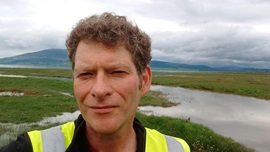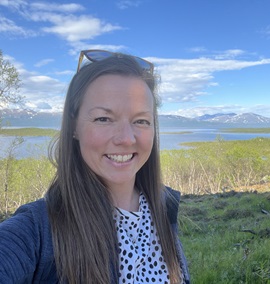-
Study
-
Quick Links
- Open Days & Events
- Real-World Learning
- Unlock Your Potential
- Tuition Fees, Funding & Scholarships
- Real World Learning
-
Undergraduate
- Application Guides
- UCAS Exhibitions
- Extended Degrees
- School & College Outreach
- Information for Parents
-
Postgraduate
- Application Guide
- Postgraduate Research Degrees
- Flexible Learning
- Change Direction
- Register your Interest
-
Student Life
- Students' Union
- The Hub - Student Blog
- Accommodation
- Northumbria Sport
- Support for Students
-
Learning Experience
- Real-World Learning
- Research-enriched learning
- Graduate Futures
- The Business Clinic
- Study Abroad
-
-
International
International
Northumbria’s global footprint touches every continent across the world, through our global partnerships across 17 institutions in 10 countries, to our 277,000 strong alumni community and 150 recruitment partners – we prepare our students for the challenges of tomorrow. Discover more about how to join Northumbria’s global family or our partnerships.
View our Global Footprint-
Quick Links
- Course Search
- Undergraduate Study
- Postgraduate Study
- Information for Parents
- London Campus
- Northumbria Pathway
- Cost of Living
- Sign up for Information
-
International Students
- Information for International Students
- Northumbria and your Country
- International Events
- Application Guide
- Entry Requirements and Education Country Agents
- Global Offices and Regional Teams
- English Requirements
- English Language Centre
- International student support
- Cost of Living
-
International Fees and Funding
- International Undergraduate Fees
- International Undergraduate Funding
- International Masters Fees
- International Masters Funding
- International Postgraduate Research Fees
- International Postgraduate Research Funding
- Useful Financial Information
-
International Partners
- Agent and Representatives Network
- Global Partnerships
- Global Community
-
International Mobility
- Study Abroad
- Information for Incoming Exchange Students
-
-
Business
Business
The world is changing faster than ever before. The future is there to be won by organisations who find ways to turn today's possibilities into tomorrows competitive edge. In a connected world, collaboration can be the key to success.
More on our Business Services-
Business Quick Links
- Contact Us
- Business Events
- Research and Consultancy
- Education and Training
- Workforce Development Courses
- Join our mailing list
-
Education and Training
- Higher and Degree Apprenticeships
- Continuing Professional Development
- Apprenticeship Fees & Funding
- Apprenticeship FAQs
- How to Develop an Apprentice
- Apprenticeship Vacancies
- Enquire Now
-
Research and Consultancy
- Space
- Energy
- AI Futures
- CHASE: Centre for Health and Social Equity
- NESST
-
-
Research
Research
Northumbria is a research-rich, business-focused, professional university with a global reputation for academic quality. We conduct ground-breaking research that is responsive to the science & technology, health & well being, economic and social and arts & cultural needs for the communities
Discover more about our Research-
Quick Links
- Research Peaks of Excellence
- Academic Departments
- Research Staff
- Postgraduate Research Studentships
- Research Events
-
Research at Northumbria
- Interdisciplinary Research Themes
- Research Impact
- REF
- Partners and Collaborators
-
Support for Researchers
- Research and Innovation Services Staff
- Researcher Development and Training
- Ethics, Integrity, and Trusted Research
- University Library
- Vice Chancellors Fellows
-
Research Degrees
- Postgraduate Research Overview
- Doctoral Training Partnerships and Centres
- Academic Departments
-
Research Culture
- Research Culture
- Research Culture Action Plan
- Concordats and Commitments
-
-
About Us
-
About Northumbria
- Our Strategy
- Our Staff
- Our Schools
- Place and Partnerships
- Leadership & Governance
- University Services
- Northumbria History
- Contact us
- Online Shop
-
-
Alumni
Alumni
Northumbria University is renowned for the calibre of its business-ready graduates. Our alumni network has over 253,000 graduates based in 178 countries worldwide in a range of sectors, our alumni are making a real impact on the world.
Our Alumni - Work For Us
Research Group Leads
 Dr Seb Breitenbach – I am head of the EnMaR (Environmental Monitoring and Reconstruction) research group.
Dr Seb Breitenbach – I am head of the EnMaR (Environmental Monitoring and Reconstruction) research group.
I am a palaeoclimatologist with strong affinity to caves and carbonates. I use carbonate chemistry and stable isotope geochemistry as tools to reconstruct past environmental and climate conditions. Ideally I then use these reconstructions to inform archaeologists, anthropologists and other interested parties and the public about the influence that climate has on society. I follow a holistic, multi-disciplinary approach and work closely with experts from a broad range of research fields. My research is globally spread as I select sites that are best suited for the research question at hand. Among other places, I work in Germany, Siberia, Mongolia, Mexico and Belize. I also ran clumped isotope thermometry in our new stable isotope laboratory.
 Dr Jack Longman – I work in the field of
palaeoclimatology and am most interested in the role volcanoes play, through
the gases and solids they erupt, in controlling the climate of Earth.
Dr Jack Longman – I work in the field of
palaeoclimatology and am most interested in the role volcanoes play, through
the gases and solids they erupt, in controlling the climate of Earth.
I generally either analyse the chemistry of mud or use biogeochemical models to do this, and have worked on volcanoes of all ages, from modern to the Precambrian. I am also very interested in geoengineering and the possibility to mimic some volcanic processes to reduce atmospheric carbon dioxide.
Research Group ECR Representatives
 Chloe Snowling - Chloe is a postgraduate researcher at Northumbria University studying past climatic and environmental change using stalagmite archives.
Chloe Snowling - Chloe is a postgraduate researcher at Northumbria University studying past climatic and environmental change using stalagmite archives.
Her research focuses on reconstructing past monsoon variability across regions of Vietnam using bio- and geochemical proxies from cave deposits. Her broad skill set includes field and lab-based analytical techniques, ranging from cave science and mapping to isotope geochemistry and environmental science. Beyond her academic pursuits, she is an avid cave explorer, completing expeditions around the globe.

Aaditya Kapil - Aaditya is a PhD student at Northumbria University studying glacial geochemistry, and his research focuses on the subglacial environment and quantifying the chemical weathering rates.
Aaditya uses cosmogenic isotopes (meteoric 10Be) to study the chemical weathering rates from post-, pre-, and syn-glacial soil, with an aim to understand global carbon flux over the past glacial-interglacial period. His broad training skills include soil science, field and lab-based analytical techniques, biogeochemistry, isotope analysis, earth science processes, and data analysis.
The Full EnMaR team
Dr Shyamalie Balasooriya – details will be added soon
Dr Lindsay Bramwell – I am currently working on In2Air – Investigating impacts of energy efficiency retrofit on AQ and health and wellbeing and ECLIPS - Protocol development and feasibility study for the Elevated Childhood Lead Interagency Prevalence Study

Dr Ben Brock – I am a physical geographer and I study glacier-climate relationships, debris-covered glaciers, volcano-ice interactions, and the Quaternary evolution of glaciated landscapes.

Dr Rebecca Cerery – I take an interdisciplinary approach to address ice flow problems such as glacier surging and fast ice stream flow mechanisms by applying the principles of interface physics, geochemistry, and microbiology to the subglacial environment. I use physical modelling of sediments and biogeochemical analysis to explore sediment-water interactions in subglacial environments.
Dr Mike Deary – details will be added soon

Dr Holly East – details will be added soon

Prof Jane Entwistle – I am a Fellow of the Society for Environmental Geochemistry and Health, and on the steering group of the North-East Contaminated Land Forum which facilitates interaction between academics, practioners and regulators. I’m also co-founder of DustSafe and the recently launched Home Biome project, a global research initiative to obtain baseline data on chemicals and microbial communities in regular households via a global citizen science-academic partnership.

Dr Vasile Ersek – I am a palaeoclimatologist and geochemist and study past climate changes and human-environment interactions. I focus on cave and karst science, atmospheric processes, paleoclimatology, palaeoceanography, and peat geochemistry.

Assistant Prof Joseph Graly – I am geochemist and I focus on the chemical and physical processes occurring beneath the world’s large ice sheets in Greenland and Antarctica. I seek to understand the connections between the glacial processes, resultant geochemical effects, and feedbacks to global geochemical cycling.

Dr Simon Griffiths – details will be added soon
Dr Emma Hocking – I am a palaeoecologist with research expertise in reconstructing Holocene environmental and relative sea-level change, palaeolimnology and palaeoseismology. I work in a variety of environments (tidal marshes, lakes, isolation basins, peatlands) using a combination of microfossil (mainly diatoms), dating and sedimentological methods.

Dr Chimdia Kechi-Okafor – details will be added soon

Assistant Prof Ola Kwiecien – details will be added soon

Assistant Prof Yao Liu – I am Yao Liu and I do plant and ecosystem ecology.

Dr Mahjoor Lone – details will be added soon
Associate Prof Paul Mann – details will be added soon
Dr Monika Markowska – I am a Royal Society Senior Research Fellow and use geological archives, such as cave deposits, to provide insights into past climate variability by utilising a variety of geochemical tools from isotopes to archaea. A particular focus of mine is in broadening our understanding of dryland hydroclimate by comparing and evaluating climate proxy and instrumental data, proxy-system modelling, developing novel techniques in quantitative temperature and rainfall reconstructions, and generating chronological methodologies across timescales from the modern to the Miocene. I am particularly passionate about improving our understanding on how fragile and vulnerable dryland landscapes will respond to future climate change. I lead the Royal Society University Research Project: Unlocking the drivers of global desert expansion in warmer and colder worlds. This project aims to unravel the key drivers of hydroclimate variability in global dryland environments using speleothem deposits.

Assistant Prof Ashley Martin – details will be added soon

Dr Sevi Modestou – details will be added soon
Prof Anil Namdeo – I am Professor of Air Quality and Net Zero and Fellow of the Royal Meteorological Society and of the Institute of Air Quality Management, UK. My research interests include air quality (monitoring, modelling and management) and health and I focus on environmental and sustainability assessments of land-use, transportation and other developmental policies. Ongoing projects include: Impact+ (environmental Index Promoting Assessment and Circular Transparency in fashion); Nuna (Effective mitigation and adaptation to changing ground conditions for resilient coastal futures); ETHOS (Co-developed environmental solutions to mitigate the impact of temperature extremes on the Health of vulnerable populations); and In2Air (the impact of ‘net-zero’ household energy intervention on indoor air quality, occupant self-reported general health and wellbeing, and household energy use).

Dr Sina Panitz – details will be added soon

Associate Prof Matthew Pound – details will be added soon
Assistant Prof Miranda Prendergast-Miller – details will be added soon
Dr Kate Randall – details will be added soon
Prof Michael Rogerson – details will be added soon
Dr Ed Rollason – I am an interdisciplinary environmental geographer with a particular focus on water. My research interests sit at the intersection between physical catchment processes, such as hydrology and geomorphology, and social-environmental interactions, for example exploring flood risk management and community resilience, or the use of water as a resource. I am currently Northumbria Principal Investigator for the Defra-funded SuDS+ project, which is exploring innovation in the use of retrofit blue-green infrastructure for urban (re-)generation.
Prof Ulrich Salzmann – My research focuses on the reconstruction of the Earth’s past environments. I am particularly interested in the palaeoclimatology and palaeoecology of tropical and polar regions.

Associate Prof Leona Skelton – details will be added soon
Dr Eleanor Starkey – details will be added soon
Dr Stuart Umbo – I am member of the IsoPerm project and reconstruct past near-surface temperatures using clumped isotopes in ostracods and speleothems. Using pollen extracted from speleothems I explore past vegetation - from the Miocene to modern day.

Assistant Prof Leanne Wake – I’m an Earth system modeller and my research relies on data gathered from environment monitoring campaigns. I am currently working on projects related to (1) Using sea level data to understand the evolution of the Greenland Ice Sheet over the past 400 years (Dr. Emily Hill, Prof. Hilmar Gudmundsson) (2) Using in-situ monitoring of greenhouse gas fluxes in the Canadian Arctic to constrain climate model simulation of winter CH4 and CO2 emissions from the tundra (Dr. Nick Rutter, Dr. Paul Mann, PhD student Jonathan Rutherford) (3) Understanding lake overturning regimes in high-latitude lakes (Dr. Emma Hocking, Dr. Paul Mann, Phd student Leeza Pickering).

Prof Bronwen Whitney – details will be added soon
Dr Kate Winter – details will be added soon
Dr Emily Sear – details will be added soon
Our EnMaR postgraduates
Abeer Alomiri – My research focuses on “Intersecting Environmental, Health, and evaluation Factors: A Comprehensive Examination of Afforestation Initiatives in Saudi Arabia”. I use a mix of methods and aim to enhance the body of knowledge on afforestation by examining its specific environmental, health and geographic impacts in the context of Saudi Arabia.

Holly Bartlett
Maria Box – I am part of the IsoPerm project and study Quaternary environmental changes in Mongolia using cave deposits.

Andrew Burnham – I am a NERC-funded PhD candidate with the ONE Planet DTP, with a background in chemistry. For my project I am working with a Chinese speleothem to reconstruct the climatic impact of the Toba super-eruption (~74 ka BP), and I am running tephra leachate experiments to simulate trace element transport into caves.

Emily Donaghy
(now Dr) Matthew Floyd
Emi Husband – I am a coral reef geomorphologist with a present focus on coral reef islands. My PhD research explores the Holocene formation of Caribbean reef islands by reconstructing the chronostratigraphic histories of reef islands using sediment cores and 14C analysis. I also utilize remote sensing technologies and field-based reef survey methods to study the contemporary marine environments surrounding reef islands, aiming to understand the ecological and environmental factors driving their ongoing evolution. My research integrates these datasets to help understand the dynamic processes shaping these critical environments.

Loretta-Ann Jilks
Aaditya Nath Kapil – I work with cosmogenic beryllium to learn about weathering under different climatic conditions.

Jade Margerum – I am member of the IsoPerm project and focus on cave deposits as archives of environmental changes in Siberia. I use biomarkers to reconstruct interglacial wildfire and vegetation in the southern Siberian taiga.

Jess Bela McCoy – I am a NERC-funded PhD candidate, under the ONEPlanet Doctoral Training Partnership. My project focuses on the reconstruction of Oligocene to Miocene terrestrial ecosystems and climates on the northwestern edge of Europe. My project aims to contribute to the understanding of the impact of ocean dynamics on terrestrial palaeoenvironments.

Louise Mercer
Isis Cohen Nicholson – I am PhD student exploring how microbiology could be used to monitor the success of peatland restoration. My research is focused on characterising peatland microbial communities at a site in Northumberland undergoing active restoration work using environmental DNA. I will also integrate palaeoecological techniques to better understand ecological changes that have occurred through time at the site.

Tunde Okeowo
Leeza Pickering 
Abbie Rogers
Dimitra Skoulikari – I am a PhD candidate with a background in archaeology but have transitioned into paleoclimatology. My research focuses on reconstructing past climates and environments using stalagmite archives. The aim of my PhD project is to produce a detailed paleoclimate record for the island of Crete, Greece, spanning the Holocene and to investigating how past climate fluctuations impacted past societies on the island.

Chloe Snowling
Kevin Stott
Jiaojiao Yue – I mainly work on lake sediments for paleoclimate and paleoenvironmental reconstruction. My PhD project focuses on mineralogical and stable isotope studies of inorganic carbonates and ostracod valves from early Lake Van sediments.

EnMaR #geodogs
IT representative #geodog Pebble – I provide expertise in all things field and my unerring nose will find even the most erratic of boulders.

Rocky – I look for rocks and sniff out geological mysteries. As the team's expert water body officer, I specialize in coastal monitoring and the occasional dead seal discovery ;-)

Otto – I serve as curator of all balls and sticks, small and large...

Jack – I look for unconsolidated sediment deposits, especially weird rock eggs.

